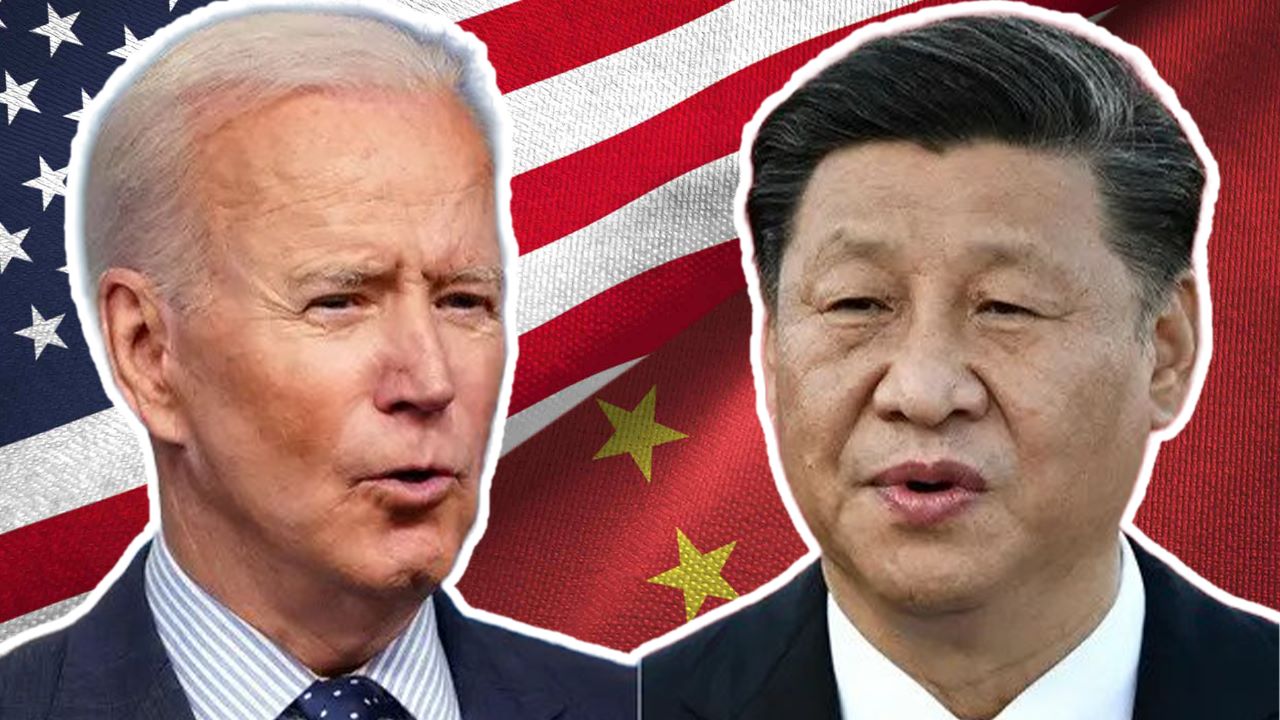Drawing lessons from the COVID-19 pandemic and the world’s incalculable loss, the US is preparing to defend itself from bio-weapons threats, mainly from China, with a US$812-million budget plan.
The US Department of Defense has set up and launched a new Bio-Defense Council and has sought funding from the Biden administration to “better prepare for future biological emergencies and deter countries like China from pursuing potentially deadly biological weapons,” Defense One reported on August 24.
“But biological defense isn’t as clear or straightforward as the type of security that’s bought with aircraft carriers and missiles,” the report said, quoting the Biodefense Posture Review of the Defense Department released just days ago.
The Biden administration announced the bioweapon threat response plan at a Center for Strategic and International Studies (CSIS) event on August 23, noting that the US has to try to work with China on emerging biological threats, even as the Pentagon focused on deterring the Asian giant from conflicts.
Biodefense Review Picks Holes In Preparedness
The Biodefense Posture Review pointed out the handicaps faced by the US in its response to the next big biological disaster and asked for increasing surveillance of biological weapon threats as they emerge.
It sought better coordination within the defense department on national security and improving supplies of biodefense materials within the country, including personal protection kits such as masks and fabrics, chemicals for medicines, or even the electronic devices needed to go into medical equipment to treat affected populations.
“DOD’s biodefense industrial base faces significant challenges similar to other critical sectors (e.g., semiconductors). For example, the bulk of production, especially for key precursor materials, has moved overseas (especially to China). Subsequently, domestic production has dwindled to a single supplier in many cases,” the review reads.
The review called for stringent controls on investments going to China to manufacture medical equipment and biodefense materials and lure them back to the United States through grants and other financial incentives.
It suggested protectionism as the best form of defense. It pushed for the Biden administration to “possibly use the Committee on Foreign Investment in the United States, or CFIUS, to address better money that goes to China and ensure US intellectual property relevant to bioweapons isn’t going to China.”
China’s Challenge To US Biodefense
But unlike in many other domains, such as hi-tech military matters, the United States can’t simply isolate China regarding biological security, Defense One claimed.
“China’s larger environment is one where there are lots of active research partnerships between American universities, American industry, and others that are vitally important in the life sciences,” J. Stephen Morrison, a senior vice president at CSIS and director of its Global Health Policy Center, was quoted to have said August 24.
“What becomes of them? And also, what about our bilateral dialogue between the US and China on these critical strategic threats from future pandemics? Is that dialogue to be restored and created? Is there space for that in the midst of this competition?”
In fact, in 2022, China surpassed the US as the leading publisher of academic research in the biosciences, according to a June analysis from Nature.
The heated — and sometimes ill-informed — controversy over the idea of NIH funding for gain-of-function research (research into how deadly pathogens adapt to exist in warm-blooded animals like bats, birds, and humans) illustrates clearly the political dangers of trying to engage with China on joint biological research initiatives, the report claimed.
“But China is also making partnerships more and more difficult,” Richard Johnson, deputy assistant secretary of defense for nuclear and countering weapons of mass destruction policy, said at the CSIS event.
Johnson told the CSIS audience the Biden administration has made efforts to reach out to the Chinese government to coordinate responses to biological threats.
“Certainly, we continue to be interested in having a dialogue with Beijing on these issues and ensuring we understand where we’re coming from. Unfortunately, the response that we’ve gotten from the PRC to the release of the final posture review was an influx of disinformation and misinformation about what the United States is doing on bio issues,” he said.

COVID Lessons And Takeaways
The COVID-19 pandemic and the devastation it caused to the US in particular and the world, in general, had exposed one of the critical weaknesses in responses to biological threats, including its offshoots, such as disinformation about viruses, both from domestic sources and from state actors like China, spreads far faster than the pathogens themselves.
“Chinese publications have called biology a new domain of war. The PRC and Russia have also proven adept at manipulating the information space to inhibit attribution, to reduce trust and confidence in countermeasure effectiveness, and potentially to slow decision-making following deliberate use,” the Biodefense Posture Review said.
But the defense department is limited in the messaging it can do to counter misinformation and confusion about biosecurity threats, even if it is bound to take the lead on the biological response to pandemics because it’s one of the only parts of government both parties can agree to fund, the report claimed.
As the biodefense review states: “Substantial DoD resources have been used to support civil authorities and international partners because of insufficient capability elsewhere, and emphasizes the need to anchor our strategy in a holistic response that includes other US government departments and agencies and international allies and partners; minimizes bureaucratic challenges to information sharing, and increases interoperability.”
Globally, as of August 16, there have been 769,806,130 confirmed cases of COVID-19, including 6,955,497 deaths, according to reports submitted by nations to the World Health Organization.
- NC Bipindra is a 30-year veteran in journalism specializing in strategic affairs, geopolitics, aerospace, defense, and diplomacy. He has written extensively for the Times of India, New Indian Express, Press Trust of India, and Bloomberg News. He can be reached at ncbipindra (at) gmail.com
- Article Republished with Modifications
- Follow EurAsian Times on Google News




